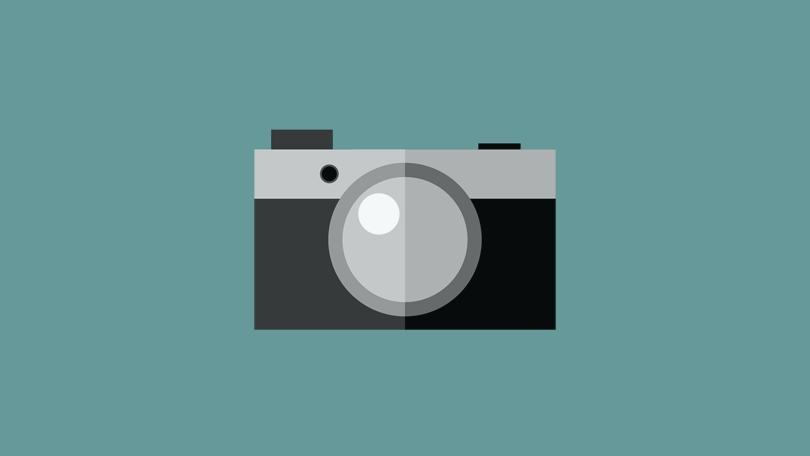Changes in eating in Ramadan time needs to be balanced with a healthy and balanced diet so as not to cause indigestion and other health problems. A healthy diet is also important to maintain the condition of your stay in shape during fasting in the daytime.
In principle, the body still has the same nutritional needs as we are not fasting.Although the amount of food that enters the body may be reduced, nutrition remain to be fulfilled. Therefore, we must be smart set menus and diet.
If in a normal day we divide the intake into three meals, this requirement must be met at dawn and breaking the fasting month. Alternatively, you can also share it as much as three times that at dawn, breaking, and after tarawih. What is clear, healthy eating menu for dawn and breaking should include a source of carbohydrates, protein, vitamins, minerals, fiber, and liquids.
Which should be provided at dawn
When fasting, we are forbidden to eat and drink from dawn to sunset call to prayer. In fact, there are many activities and work to be done. In order not limp body and stay healthy, try not to miss the dawn of time. Although it is sunnah to end a dawn, provide sufficient time for unhurried in enjoying the food.
Carbohydrate
carbohydrate source selection is very important to determine the availability of your energy.Choose complex carbohydrates such as brown rice, whole grain bread, cereal, oats, potatoes, lentils, and others. Body digest complex carbohydrates gradually so as to keep the rise in blood sugar levels (glucose) and provide a 'satiety' is longer.
carbohydrate source selection is very important to determine the availability of your energy.Choose complex carbohydrates such as brown rice, whole grain bread, cereal, oats, potatoes, lentils, and others. Body digest complex carbohydrates gradually so as to keep the rise in blood sugar levels (glucose) and provide a 'satiety' is longer.
Protein and fat
Although necessarily limited, fixed fat needed by the body to digest vitamins A, D, E, and K. The addition of fat in the diet can also slow down the metabolism of sugars and sustain energy longer. Select a source of healthy unsaturated fats as given nuts, olive oil, canola oil, or marine fish (tuna, salmon, etc.).
When the reserves of carbohydrates and fats used up, the protein will be used as a primary energy source by the body. To prevent the loss of muscle mass, always meet protein needs through the consumption of eggs, tempeh, tofu, fish, chicken without skin, or other low-fat dairy products. Protein is also needed to repair damaged cells and increase endurance.Although necessarily limited, fixed fat needed by the body to digest vitamins A, D, E, and K. The addition of fat in the diet can also slow down the metabolism of sugars and sustain energy longer. Select a source of healthy unsaturated fats as given nuts, olive oil, canola oil, or marine fish (tuna, salmon, etc.).
Vegetables and fruits
Constipation or hard CHAPTER is one of digestive disorders that often show up in the month of fasting. To prevent this, the fiber needs to be met through vegetables and fruits. Fiber-rich foods are also digested slowly by the body, giving a sense of satiety for longer, and can prevent stomach acid surges.
Constipation or hard CHAPTER is one of digestive disorders that often show up in the month of fasting. To prevent this, the fiber needs to be met through vegetables and fruits. Fiber-rich foods are also digested slowly by the body, giving a sense of satiety for longer, and can prevent stomach acid surges.
Read also: Foods to prevent hard CHAPTER .
Vegetables and fruits also contain a variety of vitamins, minerals, and other phytochemical compounds required by the body. Compared to consume one type of vegetable and certain fruits, try to combine or vary the menu so that nutrients are absorbed by the body also vary.Cut fruits and vegetables that stimulates the production of gases such as cabbage and cabbage.
Fluid
liquid Adequacy when fasting is important to prevent dehydration.If the recommended amount per day is 2 liters or 8 glasses, for fulfillment at dawn, open, and night before bed. Not only water, you can consume the juice and fresh fruit also provides vitamins and minerals. For example, watermelon, melon, and orange. Coconut water is also consumed because the content of the electrolyte.
liquid Adequacy when fasting is important to prevent dehydration.If the recommended amount per day is 2 liters or 8 glasses, for fulfillment at dawn, open, and night before bed. Not only water, you can consume the juice and fresh fruit also provides vitamins and minerals. For example, watermelon, melon, and orange. Coconut water is also consumed because the content of the electrolyte.
In addition, there are also purely sterile milk easily absorbed and can keep your stamina throughout the day during Ramadan.
Which needs to be provided when breaking fast
Iftar is one of the most anticipated moment during Ramadan. However, it does not mean you can eat indiscriminate and excessive lust for delayed all day. If not careful, the food you eat can actually promote weight loss, cholesterol, and cause indigestion. Ramadan fasting for health benefits could not you get optimally. Keep portions to remain normal with attention to the content of the nutritional balance.
Carbohydrates
Same as at dawn, eating complex carbohydrates such as whole grains and brown rice will provide more stable energy for the body. It is better to consume heavy meals after tarawih to avoid feeling lazy and sleepy.
Same as at dawn, eating complex carbohydrates such as whole grains and brown rice will provide more stable energy for the body. It is better to consume heavy meals after tarawih to avoid feeling lazy and sleepy.
Protein and fat
sea fish and eggs consumed to meet the needs of protein and healthy fats. Vegetable proteins such as soybeans could also be an alternative for those who do not like or are allergic to animal products. Nutritionists from the Physicians Committee for Responsible Medicine in the United States are also advised to increase the consumption of plant-based foods during Ramadan because it can reduce the risk of cancer, heart disease, and other chronic diseases.
sea fish and eggs consumed to meet the needs of protein and healthy fats. Vegetable proteins such as soybeans could also be an alternative for those who do not like or are allergic to animal products. Nutritionists from the Physicians Committee for Responsible Medicine in the United States are also advised to increase the consumption of plant-based foods during Ramadan because it can reduce the risk of cancer, heart disease, and other chronic diseases.
Vegetables and Fruits
Vegetables and fruits are advised to consume as much as 2 servings each day. Divide the second portion at dawn and breaking. One of the most popular fruit when breaking is dates. Besides advised by the Prophet Muhammad, the consumption of dates when breaking also provide many health benefits . However, do not forget to keep the portion that blood sugar levels are not too jumped.
Vegetables and fruits are advised to consume as much as 2 servings each day. Divide the second portion at dawn and breaking. One of the most popular fruit when breaking is dates. Besides advised by the Prophet Muhammad, the consumption of dates when breaking also provide many health benefits . However, do not forget to keep the portion that blood sugar levels are not too jumped.
Vegetables and fruits can also be utilized as an alternative takjil healthier than fried foods and fast food. Moreover, both have a high water content which can prevent the body from dehydration after fasting. You can process them into salads, juices, and other dishes. Obviously with a healthy way of processing and avoid the use of excessive sugar and salt.
Fluids
Drink at least 2 glasses of water when breaking and before tarawih, and 2 cups of water again before bed. Choose water, fresh fruit and vegetable juices, smoothies , or coconut water to keep the body hydrated. It is also recommended to add cucumbers and tomatoes, which contain a lot of liquid, into your iftar menu.
Drink at least 2 glasses of water when breaking and before tarawih, and 2 cups of water again before bed. Choose water, fresh fruit and vegetable juices, smoothies , or coconut water to keep the body hydrated. It is also recommended to add cucumbers and tomatoes, which contain a lot of liquid, into your iftar menu.
Basically, you know that all the macro nutrient needs should be met in every dish dawn and breaking, including liquids. Then, a healthy diet what you normally prepare for your family at dawn and breaking?
Advertisement




